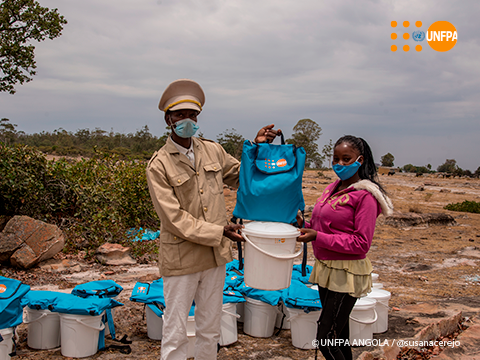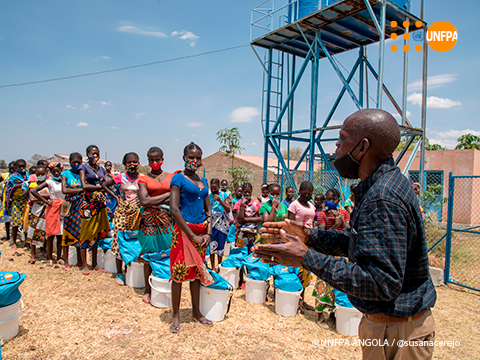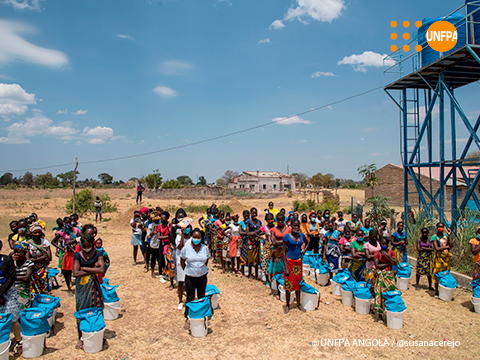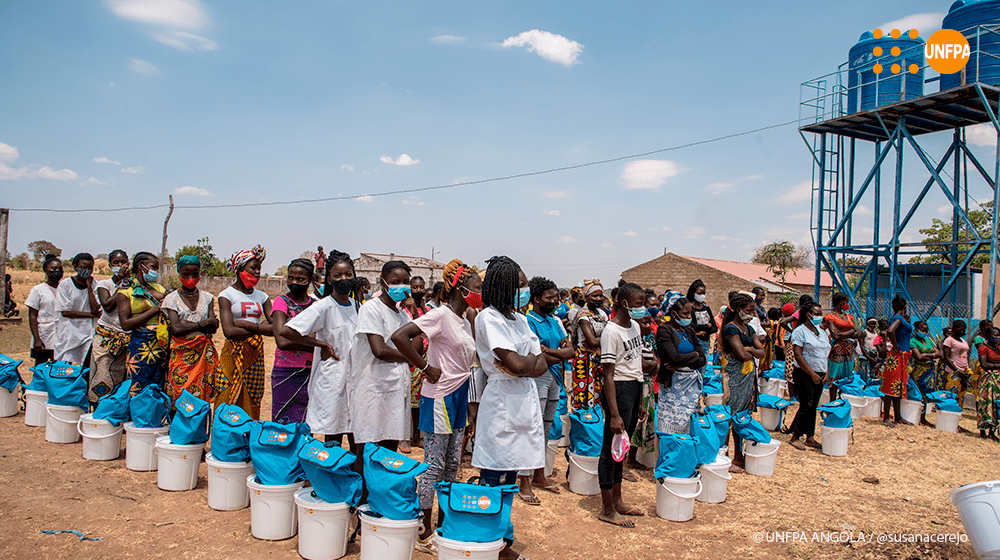Emergency funds alleviate the need of 1 million women affected by drought in southern Angola (CERF)
The drought in southern Angola catalyzes a series of invisible hazards. Food insecurity increasingly exposes the female population to gender-based violence. To help her, the United Nations Population Fund (UNFPA) has implemented a plan that will distribute dignity kits to 25,000 women and girls and directly help girls and women in the provinces of Huila, Cunene, Namibe, Benguela, Cuanza Sul and Huambo.

“I enjoyed receiving the dignity kit, because it helps with my hygiene”, says Bela José, a girl from southern Angola, who sells Mupeque oil in the Bibala market, in Huíla. Bela lives with her brother who is under her guardianship, due to her mother's fatigue, and now faces the vulnerabilities created by the drought that affects the country. The girl was one of the beneficiaries of the dignity kit distributed in that location and thanks “I enjoyed receiving the dignity kit because it helps with my hygiene”.
For Bela, it is very important to have the support of UNFPA in menstrual health issues, but what she would like is to study. I sell hair oil here at the market, on weekends I sell the chickens on the farm where my brother works, then I do housework, but I want to study” reinforces the girl, hoping that someone will listen and support her.
Dry crops, dead cattle corpses from lack of water and dusty land are just the naked eye effects of the most severe drought in the last 40 years in southern Angola. The social impact is immense. Reports from various government institutions and the United Nations System estimate that a total of 5 million people are directly hit by this severe drought, half of them deprived of health services, education and decent standards of living.

In this bleak landscape, girls and women are among the most vulnerable. Food shortages and the destruction of the communities' way of life aggravate the already existing gender imbalances and the relatively high rates of violence they suffer daily. Many try to turn around and take on jobs traditionally occupied by men, such as producing and selling charcoal. Others migrate to Namibia and nearby towns in search of food. In their strength, they make easy and fragile targets for sexual exploitation.
The situation is worrying and there is much work to be done. UNFPA is already on the ground to help reduce the exposure of this population group to the effects of drought. The upcoming distribution of dignity kits to women in southern Angola is just one step in the emergency response program known as CERF. This plan is already underway in the provinces of Cunene, Huíla, Namibe and Cuando-Cubango, with the extension to Cuanza-Sul, Benguela and Huambo soon. In total, UN agencies involved in the partnership with the Government of Angola will support 874,000 women of childbearing age and 115,337 pregnant women in matters of sexual and reproductive health and prevention of gender-based violence.
Saving lives is the ultimate goal. UNFPA predicts that this set of actions, combined with emergency obstetric care, will reduce infant mortality rates and that of pregnant and lactating women from preventable causes, in addition to having a positive impact on the reduction of HIV transmission.
On the other hand, the program also wants to intervene to improve the general health of this group. In the context of drought, girls and women avoid drinking water to avoid having to go to the few toilets with conditions, which increases the risk of urinary infections. On the other hand, they keep what little water there is for household tasks, neglecting daily hygiene, a particularly delicate situation during menstruation.
The project is funded by the World Bank and will complement the activities of other United Nations agencies on the ground, such as UNICEF or the World Health Organization, in minimizing the humanitarian impact of drought conditions in the southern region of the country.



